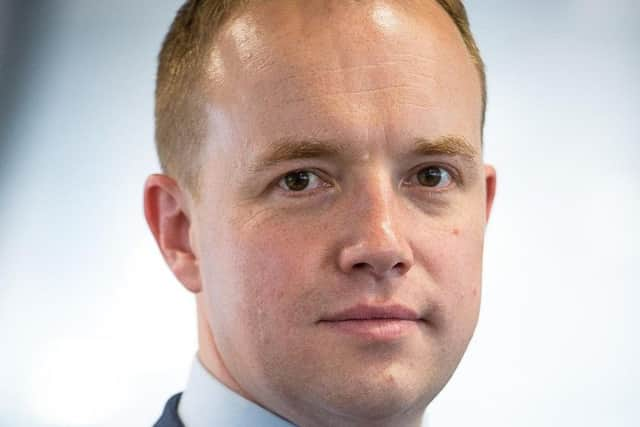Comment: The books must still be balanced as Brexit rages
MSPs would, at this time in December, finally be able to see the year’s end in sight, their thoughts starting to drift to a little festive rest and relaxation back home in their constituencies.
As if it needed to be said, times are far from normal, though. Indeed, it is hard to recall as tumultuous a political Advent as the one we are witnessing this year.
Advertisement
Hide AdAdvertisement
Hide AdStarving the policy debate of oxygen both north and south of the Border, Brexit remains all-consuming and, if anything, looks set only to increase its dominance of the political and news agenda as we approach Christmas.


With the scaffolding of Westminster’s “media village” threatening to become a semi-permanent fixture on College Green, all eyes are firmly fixed, day after day, on the rolling crisis that has engulfed the mother of all parliaments. In this febrile atmosphere, it would be easy to forget – or ignore – that away from the headlines, government’s day-to-day business must continue in Whitehall and Edinburgh.
To say that the backdrop to Derek Mackay’s third Scottish Budget is “unusual” would be an understatement. Indeed, he will deliver his spending plans for 2019-20 to Holyrood on Wednesday, the day after parliamentarians in London have voted on the defining issue of their political generation. It is understandable, therefore, that the chat around office water coolers right now might not be dominated by debate over which indexation mechanisms Mr Mackay chooses to apply to his initial baseline judgements.
However, the fiscal path he chooses will be worthy of close attention. Not only will his policy choices affect businesses and households, but this year’s Budget will also indicate how the Scottish Government plans to respond to a number of significant long-term challenges that have been growing in profile over recent months.
Phillip Hammond’s UK Budget raised the threshold for upper-rate income tax to £50,000. With Scotland’s higher rate still kicking in at £43,430, and levied at 41 per cent to the rest of the UK’s 40 per cent, the prospect of even greater divergence between the personal tax regime in Scotland and the rest of the UK is in clear focus. The Cabinet Secretary’s response to the Chancellor’s move will be watched closely.
Whilst local government funding is a perennial challenge for the Cabinet Secretary, and budget pressures on Scotland’s 32 local authorities should come as no surprise, this year the issue has undoubtedly gathered pace. The Convention of Scottish Local Authorities has called for the Scottish Government to provide an extra £550 million in the forthcoming budget to prevent further cuts to services, warning that there are “no options left” to save money without cutting core services.
The Scottish Government would be hard-pressed to ignore this challenge, and may supplement any changes to the budget settlement for local government with mechanisms to free up local authorities to generate more income themselves, for example, the ability to levy region-specific “tourist taxes”. Another challenge Mackay finds himself wrestling with is that of business rates and 2018 has proved a torrid year for the retail sector. The Cabinet Secretary will be aware of pressure to respond and be seen to protect the country’s high streets.
Mindful that his government no longer enjoys an overall majority, and that he is dependent on the support of at least one other party at Holyrood, Mackay will be preparing for horse-trading ahead of his budget vote in the New Year. So, whilst parliamentarians south of the Border may hold our gaze as they wrestle with Brexit, away from the spotlight the Cabinet Secretary will have his own negotiations to undertake in Edinburgh.
Andrew Henderson, director of public policy at law firm Pinsent Masons